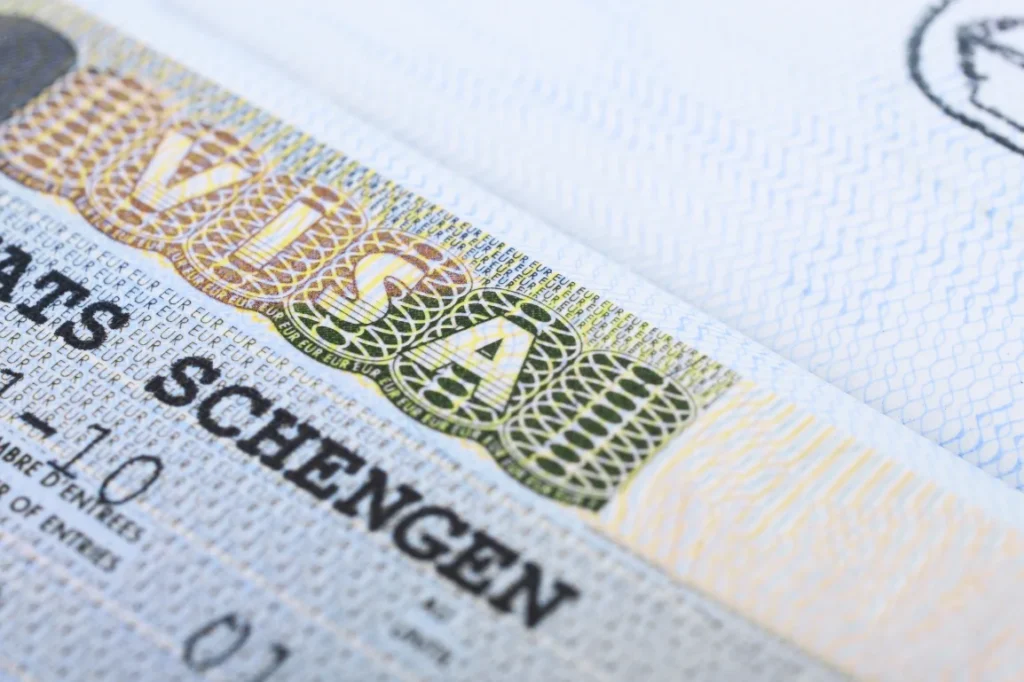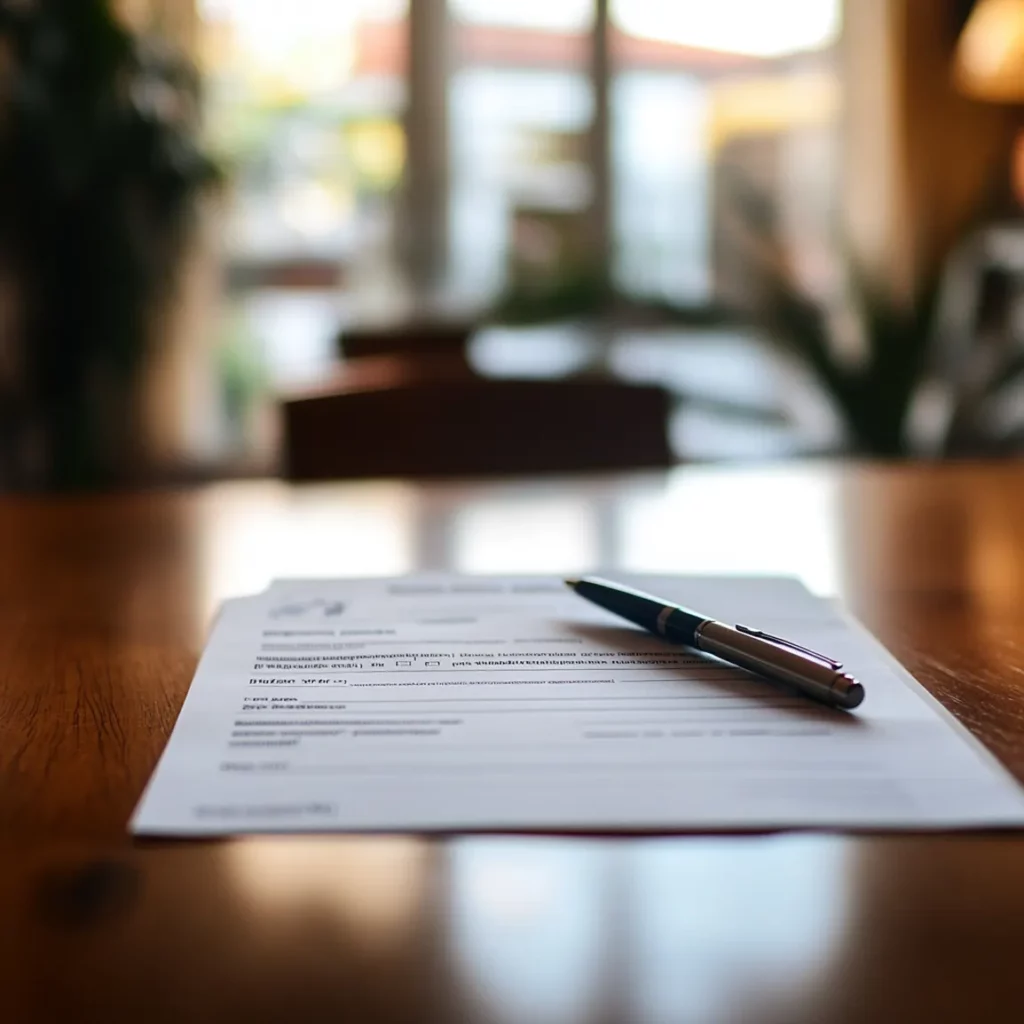Home > How to Apply for a Schengen Visa for Switzerland

How to Apply for a Schengen Visa for Switzerland
Switzerland is known for many things: its snowy mountains, green rolling hills, and, of course, you can't forget the chocolate.
If you're planning a trip there, you might be wondering whether you or not you need a Switzerland visa and how to apply for one.
In this article, we'll walk you through the ins and outs of the Swiss visa process, whether you’re coming from the US or another country.
Do I need a visa to visit Switzerland?
Switzerland is part of the Schengen area, which means whether or not you need a visa depends on a few factors:
- your nationality (the country that issued your passport).
- the reason for your trip (tourism? work?).
- the duration of your trip (how long do you intend to stay?).
If you’re from a visa-exempt country, you do not need a visa for short stays in Switzerland (up to 90 days in a 180-day period). This includes citizens from the US, UK, Mexico, Canada, Australia, and more.
That said, if you live in the US and are not a US citizen, you may need a visa to visit Switzerland.
If you’re not from a visa-exempt country, you will need a visa to enter Sweden. Countries this applies to are China, South Africa, India, and others - even if you legally reside in the USA.
If you’re a citizen of a Schengen country, you do not need a visa to enter Switzerland.
Do US citizens need a visa for Switzerland?
If you're a US citizen traveling to Switzerland, you do not need a visa.
However, if you’re traveling to work, study abroad, or intend to stay longer than 90 days, you will need to apply for the appropriate Swiss visa.

How do I apply for a Switzerland visa?
Switzerland has different types of visas depending on the purpose of your trip. No matter which specific type of visa you are going to apply for, the process follows the same simple steps.
- Determine which visa you’ll need (the most common is a Short-Stay (Type-C) Schengen Visa for tourism/business trips).
- Gather all of the required documents. Your visa center or consulate will give you a list of the documents you’ll need to provide as part of your application.
- Book an appointment at a visa center or consulate in your country of residence.
- Attend your appointment where you’ll submit your biometrics and your completed application.
- Receive an answer!
Can I apply for a Swiss visa online?
Unfortunately, you cannot complete the Swiss visa application process entirely online. However, you can start the process by downloading the necessary form(s) from the visa center or consulate website.
You will then need to attend a Swiss visa appointment in person at a Swiss consulate or visa center in your country of residence.
In the coming years, travelers will be able to apply for Swiss visas online through a system called EU VAP. It hasn’t launched just as of yet, but it’s expected to be fully operational by 2030.

Is a Swiss visa difficult to get?
While the visa process is straightforward enough, it’s important to meet all the requirements.
Whether or not your Switzerland visa is approved or denied is entirely up to the Swiss Embassy.
What is the rejection rate for Swiss visas?
In 2024, 11.3% of Schengen visas for Switzerland were denied globally. In 2023, it was 10.67%.
It’s also helpful to know that rejection rates aren’t rigid – they’re constantly changing and differ depending on the nationality of the applicant, which visa they’re applying for, seasonality, and more.
This is why looking at the rejection rate isn't really a good indicator was to whether or not your specific visa application will be approved or denied.
What is the processing time for a Swiss visa?
The average processing time for a Swiss Schengen visa is about 15 days.
Depending on the visa type (such as a visa for longer trips) it could take weeks or even months, so it’s essential to apply well ahead of your departure date – just in case.

Switzerland visa application requirements
When you apply for a Schengen visa for Switzerland, it's important to know the requirements and to make sure that you can meet them.
For all Switzerland visa applications, there are essential standard documents you can expect to provide.
On top of that, specific visas will require supplementary documents as well, which vary from type to type.
As mentioned above, you'll receive a list of exactly which documents (and in what formats) you need to supply when you apply.
Which documents are required when applying for a Swiss visa?
- Completed visa application form.
- Valid passport.
- Passport-sized photos.
- Flight itinerary.
- Proof of accommodation (hotel booking, invitation letter, etc.).
- Travel insurance meeting the minimum Schengen visa travel insurance requirements.
- Proof of financial means (bank statements, employment letter, etc.).
Is there an interview when applying for a visa for Switzerland?
An in-person appointment is required. While this appointment isn’t a formal interview, you may be asked questions about your application, documents, and what your specific travel plans are.
The purpose of this visa appointment is to ensure all of the required documents are present and in place, to collect your biometrics (fingerprints), and to submit your completed application.
A visa officer will assist you through the appointment.

Do I need to apply for ETIAS if I have a Swiss visa?
No. If you already have a valid Swiss or Schengen visa, you don’t need ETIAS authorization.
Who needs ETIAS to visit Switzerland?
Citizens from visa-exempt countries (like the US, Canada, Australia, and the UK) will need ETIAS to visit Switzerland and the rest of the Schengen zone starting in 2026, unless they hold a valid Swiss or Schengen visa.
You can learn more in our Swiss ETIAS guide.
